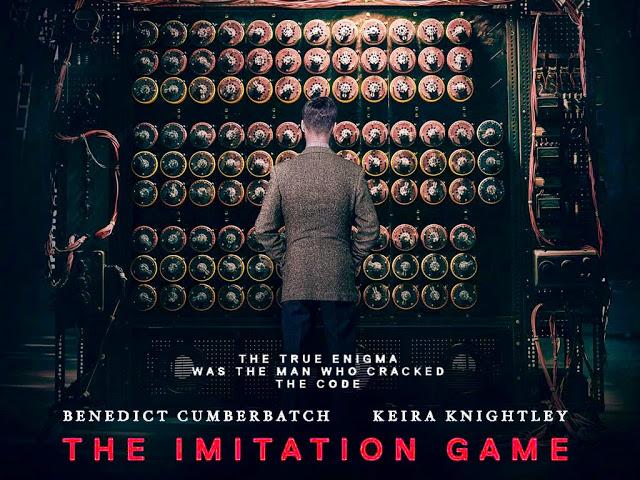REVIEW: ‘The Imitation Game’ brings historical events to life
February 26, 2015
Imagine a code that has 159,000,000,000,000,000,000 possibilities, a number of possibilities that would take a group of men millions of years to test every single one, even if they worked consistently and never stopped. Now imagine if that code changed every 24 hours… and then everything had to be done all over again. This was the challenge that faced Alan Turing and the codebreakers of World War II, and The Imitation Game is the movie that finally tells their story.
The recent winner of Best Adapted Screenplay at the Oscars follows mathematician Alan Turing (Benedict Cumberbatch), who is among the few men chosen to break the “unbreakable” Nazi code. Every day, the codebreakers spend hours testing codes, only to fail when the clock strikes midnight and the code resets itself. Turing begins to realize the only way to break the machine-produced code is with another machine, which he begins to build, but almost everyone thinks his idea is a failure in the making. The exception is Joan Clarke (Keira Knightley), a brilliant woman who works in secret with the code breakers because Turing thinks a woman deserves the same chance to help break the code as any man. Fighting against skepticism and racing the clock, the fate of the war rests on the shoulders of these few.
Cinematically, the movie was well done. In some movies, the viewer often gets the feeling that the film is overdramatized, or spends so much time focusing on explosions that the plot is underdeveloped. Or, as is often the case with a biographical movie such as this, that the movie drags on and on and becomes boring, bogged down with details. Yet The Imitation Game dodged all of these potential downfalls. The story traveled among three points in time (before the war, during the war, and after the war), which helped keep the storyline moving, although never revealing details that would ruin any other part of the story.
One of the most compelling things about the movie was the historical significance of the event; I had no idea about the huge role these code breakers played in the war, or what a difference Alan Turing made, and his influence in the world of computer engineering. It was a unique experience of looking at history from a new perspective.
Although the fact that The Imitation Game is based on a true story added restrictions to the film, the filmmakers did a fantastic job of taking the historical aspect of the story and bringing it closer to the audience. Every impact point seemed to have a much greater weight because it was true and not merely a hypothetical situation. However, critics have pointed out that some relationships in the film were exaggerated for the purpose of the story.
Despite small discrepancies though, the movie was well made and also had a good message at the heart of it. The movie celebrates the incredible accomplishments of Alan Turing, who was persecuted for being different and was never given adequate recognition because he didn’t fit in. Graham Moore addressed this when he won the Best Adapted Screenplay award for The Imitation Game at the Oscars and made a moving speech in which he said “Stay weird, stay different.” Having struggled with self-confidence in his own life, Moore urged those who felt like they never fit in to be confident in themselves and be proud of who they are, because they can accomplish great things. Both Moore’s and the movie’s message can best be summed up in this quote from the film: “Sometimes it is the people no one imagines anything of who do the things no one can imagine.”
Rating: 8.5/10
The Imitation Game is currently showing in select theaters, and is predicted to come to DVD and RedBox on March 31.
